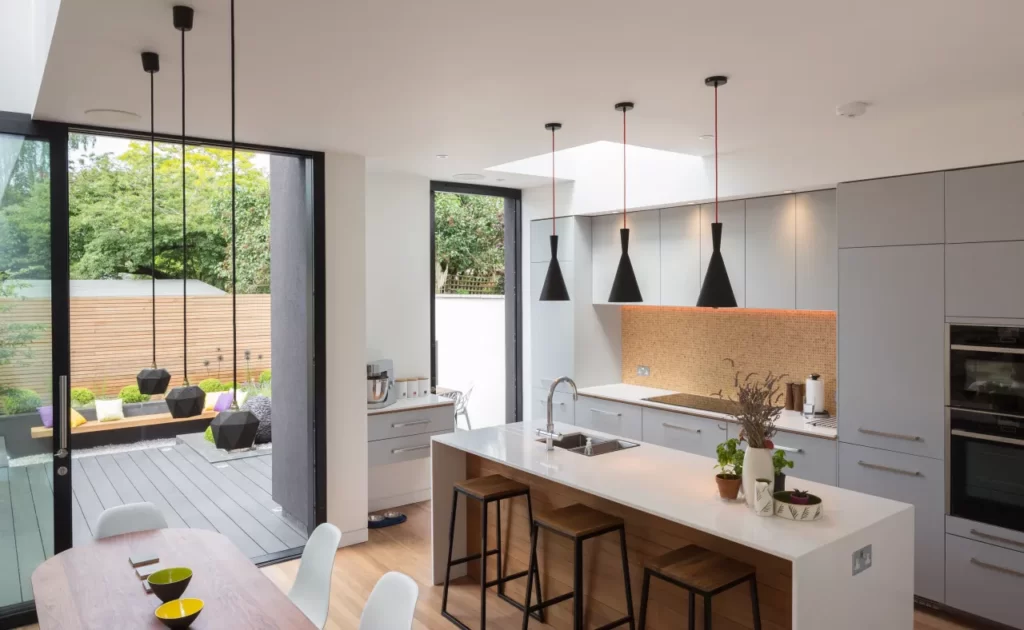

As per the government’s assertion, this Bill represents a “landmark transformation of housing legislation.” Landlords have been closely monitoring the bill’s provisions, as it will enact the following changes:
-
- More difficult to evict tenants.
-
- Mandatory for landlords to join an Ombudsman scheme.
-
- Easier for tenants to have pets.
-
- It is now illegal for landlords to issue blanket bans on letting to those on benefits
So what is the Renters’ (Reform) Bill?
The idea of a Renters’ (Reform) Bill was first introduced in 2019 by the now Ex-Prime Minister Theresa May but has faced a number of delays, mainly due to the Covid-19 pandemic.
The Bill’s aim is to address what the government described as an ‘imbalance’ between tenants and landlords, providing more security for tenants and improving standards in the Private Rented Sector.
How will the Renters’ (Reform) Bill affect landlords?
The Renters’ (Reform) Bill will affect landlords in a variety of ways, including:
-
- The end of fixed term tenancies.
-
- The end of blanket bans on tenant specific demographics.
-
- Renting to tenants with pets – ‘Renting with pets: Renters (Reform) Bill‘
-
- Changes to how rents are reviewed and increased notice periods.
-
- The end of section 21.
-
- The Decent Homes Standard.
-
- A landlord portal and a requirement to join a new ombudsman scheme.
-
- Changes to landlord grounds for possession.
Goodbye to Section 21 – No More ‘No Fault’ Evictions
The most important change is the removal of section 21, also known as ‘no fault’ evictions.
From now on, all evictions must be based on valid reasons provided by the landlord through a notice under section 8 of the Housing Act 1988.
The structure of section 8 is quite similar, although the grounds for possession outlined in Schedule 2 of the 1988 Act have undergone extensive revision, which requires careful cross-referencing.
Why was this change implemented? According to the government, the abolition of section 21 aims to “empower renters to challenge poor landlords without fear of losing their home.”
This means tenancies will only end if the tenant decides to leave or if the landlord has legitimate reasons for possession under section 8.
What does this mean for landlords? We believe the impact should be minimal. Since only about 6% of tenants are evicted using section 21, this change shouldn’t significantly affect landlords. Moreover, the Bill promises to strengthen grounds for possession and enhance court processes, enabling landlords to swiftly and effectively regain access to their properties when tenants fail to fulfil their obligations and duty of care for the property.
An end of fixed term tenancies
The Bill will abolish all fixed term tenancies, replacing them with periodic agreements right from the start. Under the new rules, tenants will be required to provide landlords with a notice period of two months to end their tenancy, and any notice periods longer than two months will be deemed illegal.
Why was this change introduced? The elimination of fixed term tenancies aims to grant tenants the freedom to give notice at any point during their tenancy, providing them with greater flexibility compared to the current system.
What does this mean for landlords? Landlords will have the option to give tenants a two-month notice if they intend to sell the property or move into it themselves. Notice periods for other reasons, such as anti-social behavior or rent arrears, may vary. If a landlord attempts to establish a fixed term tenancy or issues a notice to quit, they can face penalties imposed by the local authority.
But should landlords be worried? Again we believe there isn’t much cause for concern. When a similar change was implemented in Scotland, it had minimal impact on landlords since moving can be costly. Tenants will need to secure another deposit and arrange their utilities all over again… amongst other reasons.
Renting to tenants with pets
One of the most attention-grabbing aspects is that all tenants will have the right to keep a pet if their landlord agrees. Moreover, consent cannot be unreasonably denied or withheld. Landlords must provide their decision in writing to the tenant within 42 days of the tenant’s request for permission.
Why was this change implemented? The Renters’ (Reform) Bill aims to ensure that landlords cannot unreasonably refuse permission when tenants ask to have a pet. Tenants will also have the ability to contest such refusals, granting them more control over their rental arrangements.
What does this mean for landlords? Landlords now have the option to require tenants to obtain pet insurance. This is positive news for landlords since it means they are not automatically obligated to allow pets.
However, further clarification is necessary, especially regarding properties where pets are prohibited in the headlease or in Houses in Multiple Occupation (HMOs) where the needs of other tenants must be taken into consideration.
Thank you for reading…
As with any introduction of new regulations it may take some time for those changes to be implemented. For example the ‘Private Rented Sector Ombudsman’ will be chosen and approved once it receives the Royal Assent approval.
Stay tuned for Part 2
Why choose Kellett & Co?
Looking to rent your property quickly, easily and cost-effectively? Look no further than your local online estate agency. We can offer monthly management fees from as little as 7% without affecting the service you would normally receive from an agent with an office. In fact, by operating without the overheads that come with a physical office, we’re able to offer our customers the cost savings on the monthly management fee.
Interested? Call today 01772 284898 or email Stephen at lettings@kellettandco.co.uk















